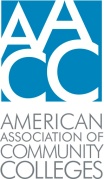By Candy Center, SEED Center Consultant and Todd Cohen, Director of the SEED Center (This article appears in the February, 2013 issue of The ACUPCC Implementer)
 The American Association of Community Colleges’ SEED Center Mentor Connect program pairs best-in-class green colleges with “mentee” colleges in an effort to more swiftly enhance programs that prepare students for careers in clean energy and green fields.
The American Association of Community Colleges’ SEED Center Mentor Connect program pairs best-in-class green colleges with “mentee” colleges in an effort to more swiftly enhance programs that prepare students for careers in clean energy and green fields.
The SEED Center created this pilot mentoring project in response to a growing demand from its 471 colleges seeking more in-depth technical assistance. “We realized the best way to replicate some of the great sustainability-related practices we were finding on college campuses was through a structured program that would leverage the expertise of our growing pool of community college experts and create peer-to-peer networking opportunities,” said Todd Cohen, director of the SEED Center.
more in-depth technical assistance. “We realized the best way to replicate some of the great sustainability-related practices we were finding on college campuses was through a structured program that would leverage the expertise of our growing pool of community college experts and create peer-to-peer networking opportunities,” said Todd Cohen, director of the SEED Center.
Mentee colle ges created project plans and outcomes and secured senior administrative support for their participation. Mentors were matched with mentees based on need and fit and over a period of nine months engaged in a series of working conference calls and, in some cases, site visits.
ges created project plans and outcomes and secured senior administrative support for their participation. Mentors were matched with mentees based on need and fit and over a period of nine months engaged in a series of working conference calls and, in some cases, site visits.
Actions focused on a range of clean tech workforce development and broader sustainability curriculum efforts. Some colleges devised strategies to more effectively engage regional employers in current or new program design while others began college-wide efforts to embed sustainability concepts into core curriculum.
The pilot project has created some significant early successes including a coordinated 14-college effort in Kentucky to train automotive faculty to infuse hybrid and alternative fuels technologies into their programs. While the peer-to-peer technical assistance has been effective, it is the potential for these partnerships to become long-term relationships that is most exciting.
Monroe Community College/Los Angeles Trade-Technical College
Monroe Community College (MCC) has offered a number of renewable and clean energy courses but was looking to invigorate and expand these and related degree offerings to more closely match employer needs in the New York Finger Lakes region. Through the Mentor Connect program MCC focused on two project goals:
1) Identify new appropriate building science and alternative energy programs, and; 2) Grow enrollment in MCC’s newly developed Solar Thermal Certificate, including identifying new certificates that will be fully transferable into existing HVAC and construction technology degree programs.
 MCC is now implementing a strategy used by several community colleges, including Los Angeles Trade-Technical College, to leverage industry certifications and competencies creating “stackable” certificates with career pathways. With this model, students complete aligned foundational competencies and receive academic certificates and/or industry certifications which can be “stacked” into an associate’s degree. The model, which has proven to be successful in helping student achievement, has only just begun to be adapted to sustainability-related industry sectors.
MCC is now implementing a strategy used by several community colleges, including Los Angeles Trade-Technical College, to leverage industry certifications and competencies creating “stackable” certificates with career pathways. With this model, students complete aligned foundational competencies and receive academic certificates and/or industry certifications which can be “stacked” into an associate’s degree. The model, which has proven to be successful in helping student achievement, has only just begun to be adapted to sustainability-related industry sectors.
In a series of conversations, LATTC mentors worked with MCC staff to use LATTC’s forthcoming tool Defining Your College’s Competitive Advantage in the Emerging Green Economy: A Blueprint for Building High Quality, Green Programs of Study. The tool helped MCC assess external factors—from industry incentives to state policy to their community appetite for sustainability—that would likely determine which clean tech industry sectors might be high-growth sectors, and thus, worthy of further college training investment.
MCC has now set a path to adapt its new solar thermal technology certificate program to prepare students to become technicians  skilled in the design, installation and maintenance of renewable energy systems. MCC’s certificate program offers a curriculum that reflects industry standards and provides a pathway to an A.A. S. degree in heating, ventilation and air conditioning/refrigeration. The connections forged as part of the Mentor Connect cohort enabled MCC to evaluate new programming opportunities and to create continuing connections between the two colleges. LATTC program chairs will share curricular materials with MCC departments to assist MCC as they revise and adapt their renewable and clean energy curriculum.
skilled in the design, installation and maintenance of renewable energy systems. MCC’s certificate program offers a curriculum that reflects industry standards and provides a pathway to an A.A. S. degree in heating, ventilation and air conditioning/refrigeration. The connections forged as part of the Mentor Connect cohort enabled MCC to evaluate new programming opportunities and to create continuing connections between the two colleges. LATTC program chairs will share curricular materials with MCC departments to assist MCC as they revise and adapt their renewable and clean energy curriculum.
